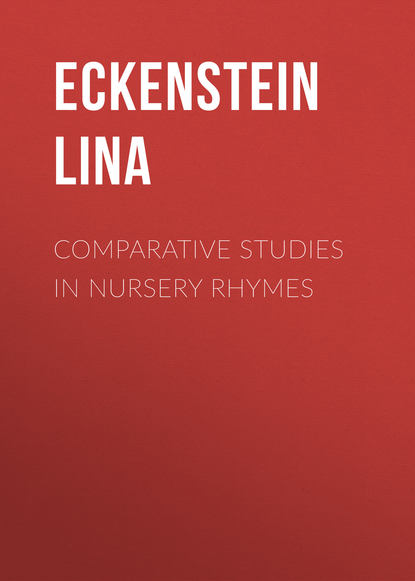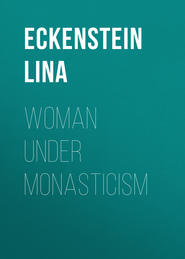По всем вопросам обращайтесь на: info@litportal.ru
(©) 2003-2024.
✖
Comparative Studies in Nursery Rhymes
Настройки чтения
Размер шрифта
Высота строк
Поля
O, that will not do …
| With arrows and bows, etc. |
V
O, how will you bring her home…
| On four strong men's shoulders, etc. |
VI
O, that will not do …
| In waggons and carts, etc. |
VII
O, what will you cut her up with?..
| With knives and forks, etc. |
VIII
O, that will not do …
| With hatchets and cleavers, etc. |
IX
O, how will you boil her?..
| In kettles and pots, etc. |
X
O, that will not do …
| In cauldrons and pans, etc. |
XI
O, who'll have the spare ribs, says Milder to Malder,
O, I cannot tell, says Festel to Fose,
We'll give them to the poor, says John the Red Nose,
We'll give them to the poor, says John the Red Nose.
Further variations of the chant have been recovered from the Isle of Man and from Ireland, where the hunt is kept up to this day. In the Isle of Man it used to take place on 24 December, though afterwards on St. Stephen's Day, that is 27 December, which according to the old reckoning was the beginning of the New Year.[66 - Waldron, Description of the Isle of Man, reprint 1865, p. 49; also Train, T., History of the Isle of Man, 1845, II, 126.] On this day people left the church at midnight and then engaged in hunting the wren. When the bird was secured, it was fastened to a long pole with its wings extended, and it was carried about in procession to the singing of the chant: —
We hunted the wren for Robin the Bobbin.
This chant further describes that the bird was hunted with sticks and stones, a cart was hired, he was brought home, he was boiled in the brewery-pan, he was eaten with knives and forks, the king and the queen dined at the feast, and the pluck went to the poor.
The behaviour of the huntsmen was not, however, in keeping with these words; for the bearers of the wren, after making the circuit, laid it on a bier and carried it to the parish churchyard, where it was buried with the utmost solemnity, and dirges were sung over it in the Manx language, which were called the knell of the wren. The company then formed a circle outside the churchyard and danced to music.
In the middle of the nineteenth century the wren was still hunted in the Isle of Man and was carried by boys from door to door, suspended by the legs in the centre of two hoops. These crossed each other at right angles and were decorated with evergreens and ribbons. The boys recited the chant. In return for a coin they gave a feather of the wren, so that before the end of the day the bird hung featherless. A superstitious value was attached to these feathers, for the possession of one of them was considered an effective preservative from shipwreck during the coming year among the sailors. At this time the bird was no longer buried in the churchyard, but on the seashore or in some waste place.
The hunt in the Isle of Man was accounted for by the legend that in former times a fairy of uncommon beauty exerted such influence over the male population of the island that she induced them by her sweet voice to follow her footsteps, till by degrees she led them into the sea, where they perished. At last a knight-errant sprang up, who laid a plot for her destruction, which she escaped at the last moment by taking the form of a wren. But a spell was cast upon her by which she was condemned on every succeeding New Year's Day to reanimate the same form, with the definite sentence that she must ultimately perish by human hand. In this form the legend is told by Train. Waldron relates the same story, which explained why the female sex are now held of little account in the island, but the fairy according to him was transformed into a bat.
In Ireland also the wren was generally hunted during the eighteenth century, and continues to be hunted in Leinster and in Connaught, but I have come across no chant of the hunt. The bird was slain by the peasants, and was carried about hung by the leg inside two crossed hoops, and a custom rhyme was sung which began: —
The wren, the wren, the king of all birds,
Was caught St. Stephen's Day in the furze;
Although he's little, his family's great,
Then pray, gentlefolks, give him a treat.
(1849, p. 166.)
The bird was slain, but it was not therefore dead. This is conveyed by the tale told in the Isle of Man, and by the following custom observed in Pembrokeshire on 6 January, that is on Twelfth Day. On this day one or several wrens were secured in a small house or cage, sometimes the stable lantern, which was decorated with ribbons and carried from house to house while the following lines were sung: —
Joy, health, love, and peace,
Be to you in this place.
By your leave we will sing
Concerning our king:
Our king is well drest,
In silks of the best,
With his ribbons so rare
No king can compare.
In his coach he does ride
With a great deal of pride
And with four footmen
To wait upon him.
We were four at watch,
And all nigh of a match;
And with powder and ball
We fired at his hall.
We have travell'd many miles,
Over hedges and stiles,
To find you this king
Which we now to you bring.
Now Christmas is past,
Twelfth Day is the last.
Th' Old Year bids adieu;
Great joy to the new.
(1876, p. 35.)
On grouping together these various pieces, we are struck by their likeness, and by the antiquity of their allusions. The bird was usually slain with stones and sticks, which are among the most primitive weapons. In Wales bows and arrows, which are old also, were declared preferable to cannons and guns. In Wales the bird was cut up with hatchets and cleavers in preference to knives and forks; it was boiled in the brewery pan, or in cauldrons and pans, in preference to kettles and pots; and it was conveyed about in a waggon or cart in preference to being carried on four men's shoulders. Sometimes the bird was plucked. Finally it was cut up in a sacrificial manner; one wing – another – one leg – another – and the spare ribs or the pluck, as the least valuable part of the feast, went to the poor.
The representative huntsmen in England are Robbin, Bobbin, Richard, and John-all-alone. In Scotland they are Fozie-Mozie, Johnie Rednosie, and Foslin, besides "the brethren and kin." In Wales they are Milder, Malder, Festel, Fose, and John the Rednose. Of these characters only Robin and Bobbin (the names are sometimes run together) and Richard, reappear in other nursery pieces. In the oldest collection of 1744 stand the lines: —
Robbin and Bobbin, two great belly'd men,
They ate more victuals than three-score men.
(1744, p. 25.)
These powers of eating perhaps refer to the first share of these characters at the feast. They are further dwelt on in the following nursery rhyme: —
Robin the Bobbin, the big-headed hen [or ben]






